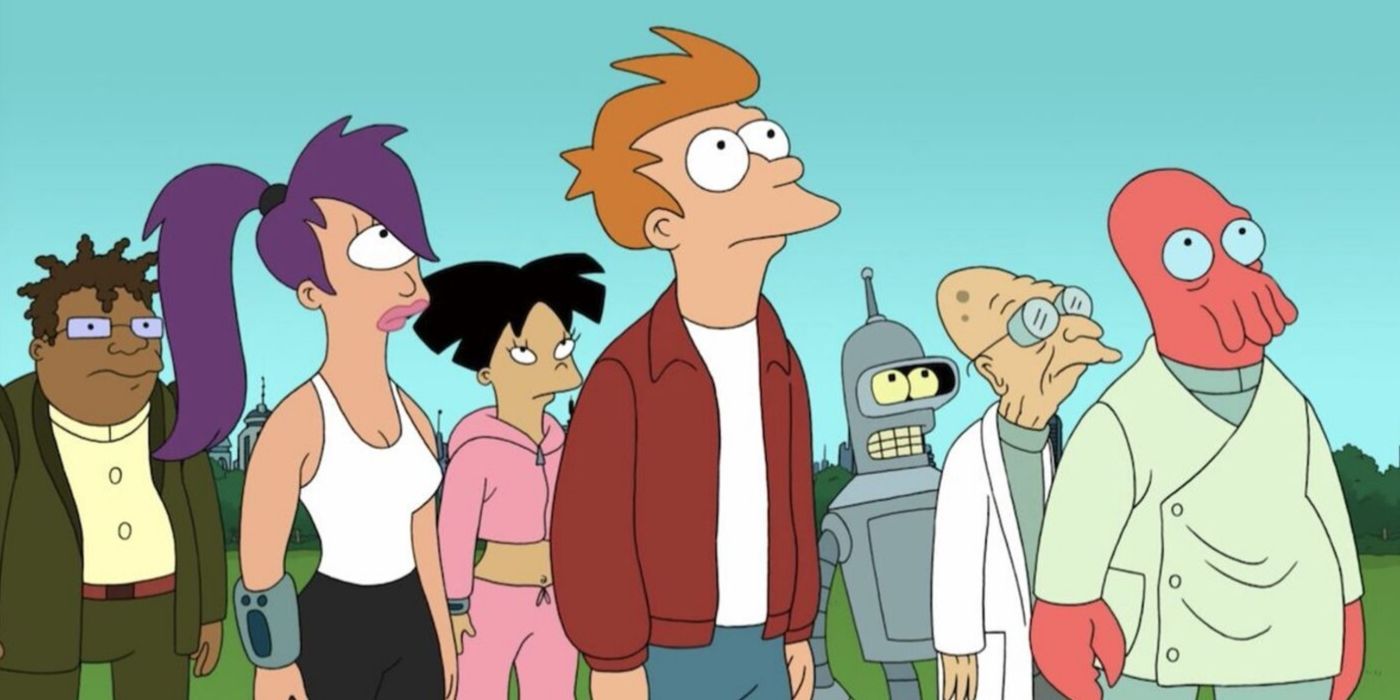They Should Have Cancelled Simpons and Continued Futurama
Futurama is a well-loved show with a passionate following, but that didn't prevent the show from being taken off the air multiple times during its run. Following the 31st century misadventures of 20th-century delivery boy Philip J. Fry,Futurama premiered in 1999 as Matt Groening's follow-up toThe Simpsons, working within the same half-hour animated comedy format, but with the potential for more outlandish concepts by virtue of its being set in the distant future.
In the years since the show's creation,Futurama has developed a devoted cult following and made instantly-recognizable icons of characters like Fry, Leela, Bender, and Dr. Zoidberg. A number of gags have even taken on a second life as ubiquitous memes. Primarily a comedy show,Futurama is just as often admired for its science fictional aspects, largely due to the influence of its highly-educated writers' room. Ken Keeler famously proved a mathematical theorem in writing his solution to the body-swapping problem of the episode "The Prisoner of Benda."
Despite its reputation,Futurama was only ever canceled two times, although twice that many finales have been prepared. Throughout the show's first four seasons, Fox was reportedly very unsupportive, constantly shuffling its time slot and delaying the airing of episodes. This indifference is odd given the fact that, at the same time,The Simpsons was continuing to be a massive success for the network, claiming the title of longest-running American sitcom just as Fox ceased buying episodes ofFuturama, bringing about its (first) demise. As a result, the first series finale came at the end of season 4 with the semi-musical "The Devil's Hands Are Idle Playthings," a song from which was nominated for an Emmy.

After years of successful syndication on Adult Swim, Comedy Central revived the series by backing the creation of four new straight-to-DVD films, which are now considered to constitute season 5. The venture was standalone, however, with no guarantee of continuation, so the last film, Into The Wild Green Yonder, served as an open-ended finale, with all of the main characters flying the Planet Express ship into an unknowable wormhole. Comedy Central eventually decided to see what was on the other side, following the films with a full sixth season. Again, the future of the partnership was uncertain, so the season 6 finale, "Overclockwise," was written as a potential series finale, its last moments giving an ambiguous but hopeful look into the future of Fry and Leela's relationship.
The series was ultimately renewed for a seventh season, but this would be its last before Comedy Central dealt Futurama its second proper cancellation, making "Meanwhile" the current holder of the "series finale" title. And a worthy holder it is, combining some of the show's best elements by using a deceptively simple time travel puzzle to give Fry and Leela a long, happy life together before bringing the story back around to the beginning.
The Simpsons is still producing new episodes and Matt Groening's new project,Disenchantment, will be returning for a second season on Netflix. While their histories have been very different, neither has faced the constant uncertainty that plaguedFuturama. But the show readily acknowledges this, wearing its tumultuous history as a badge of honor and sardonically referencing it many times, often alongside the barbed jabs at Fox it shares withThe Simpsons. While all of its closing chapters have been admirable in their approach to finality, it is difficult even now to write about Futurama in the past tense. In the past few years, there have already been reunions in the form of a crossover episode withThe Simpsons and a one-off podcast. Perhaps the show's troubles have been a benefit in disguise; after all, if its cancellations have been sudden and numerous, so too have its revivals, and so too may they continue to be.
Source: https://screenrant.com/futurama-canceled-every-time-why/
0 Response to "They Should Have Cancelled Simpons and Continued Futurama"
Publicar un comentario